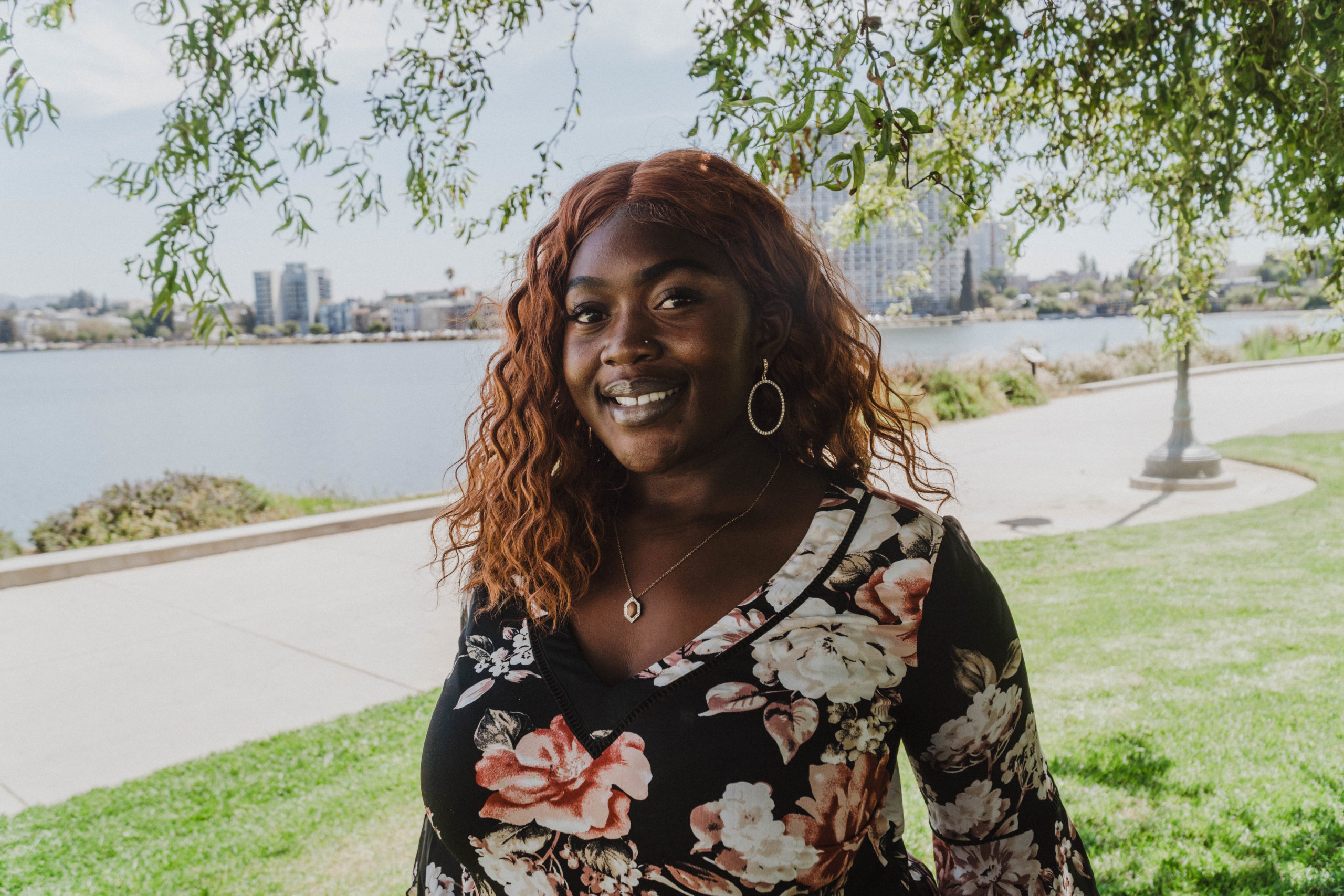The paint on the office walls is barely dry, and the new desks and chairs are piled in the main room as Tashae Hawkins and her colleagues move into Hack the Hood’s new headquarters near Oakland’s Chinatown in September.
Hawkins is the technology nonprofit’s Interim Director of Education and Training. She has just a few days to get the new space ready for a scholarship and career coaching event at which she and her co-workers will impress upon dozens of local youth their knowledge about the world of tech, and finding a career direction.
Just four years earlier, Hawkins’ life was much different. She was working in a part-time retail job making $9 an hour. Her brother called her with an exciting proposition: he was about to join a group called Hack the Hood, which would teach him tech skills, and he thought his sister should do the same.
Hawkins took her brother’s advice, and that decision transformed her life. Hawkins describes her upbringing as “dysfunctional.” Her mother struggled with drug abuse. Many of her relatives struggled, too, and even became homeless.
Determined to succeed, Hawkins began working as soon as she turned 15, but college never seemed like something that was in the cards for her.
Hack the Hood gave her the opportunity to visit tech companies and to learn skills from experts in the field. After she graduated from the program, she accepted fellowship offers from Year Up, which provides training in desktop support, project management, data analytics, and cybersecurity, and Pandora, the Oakland-based streaming music provider.
Hack the Hood is a part of Oakland Codes, a collective of nonprofit organizations connecting young people of color in Oakland to opportunities in the tech sector. Since 2015, the San Francisco Foundation has awarded a combined $5.2 million in grants to organizations comprising Oakland Codes.
In addition to Hack the Hood, the collective includes:
- The Hidden Genius Project, which trains and mentors young African American men through tech, entrepreneurship, and leadership.
- Youth Impact Hub, which provides tech, equity, and career readiness near Oakland’s Koreatown.
- The David E. Glover Education and Technology Center, which helps make tech skills accessible to low-income youth living in East Oakland.
“I wouldn’t be where I am without Oakland Codes. It has given me a chance to expand my network. I’m not just a participant — I’m a collaborator,” Hawkins says. “Oakland Codes is expanding my credibility as a young professional to be sitting at the table with seasoned professionals. It’s opened up doors for me that I thought wouldn’t be possible.”
Gino Pastori-Ng, the co-founder and co-director of Youth Impact Hub, shares a similar sentiment. Instead of these nonprofits competing for resources and funds, they’re able to collaborate, each with the common denominator of helping youth succeed.
Pastori-Ng said that includes initiatives like the Youth Impact Entrepreneurial Program, which helps youth learn the skills to run a small business. He cites Avocurl, an avocado-infused line of hand-made hair care products that founder and Berkeley resident Jasmine Curtis began making out of her kitchen and before that, in her dorm room. Avocurl is now on the shelves at local stores, including the Berkeley Bowl.
“Our organization wouldn’t be alive without this cohort,” Pastori-Ng said. “It’s been transformative. We’re very committed to partnering for the common good.”
As for Hawkins, she is taking what she has gained from Hack the Hood and paying it forward. “My goal is to empower other students and help them believe in themselves. It’s fostering that growth, that potential, that confidence inside.”
“My belief in what I wanted to be was very limited,” she adds. “Not anymore.”
By Terry Collins, foundation consultant


